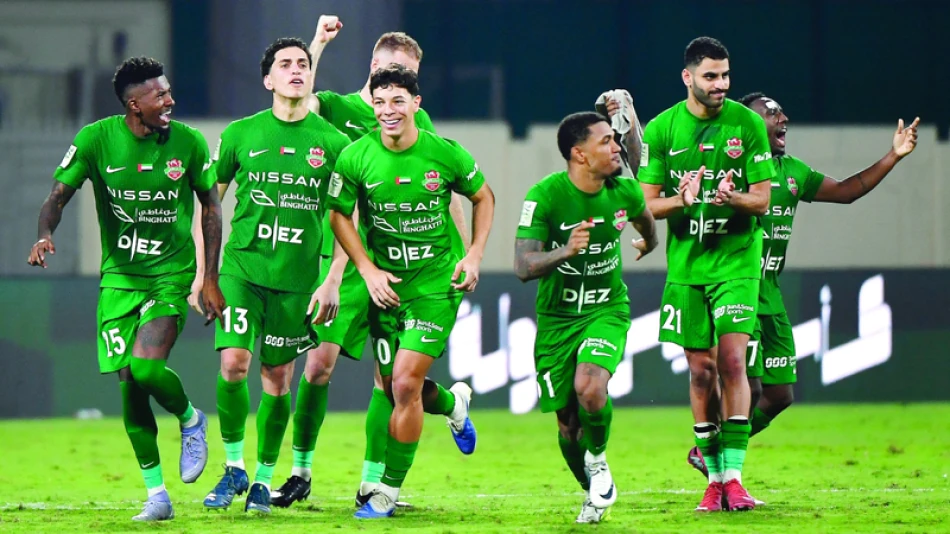
Exceptional Talents Shine at Al-Ahli Youth: Suza Praises Extraordinary Feats
Shabab Al Ahli squeezed into the quarterfinals of the UAE President's Cup after a grueling penalty shootout victory over Al Bataeh, winning 4-2 on penalties following a goalless 120 minutes of play. The match highlighted both teams' defensive resilience but also exposed some concerning issues about game flow and player fitness in UAE football.
The match at Khalid bin Mohammed Stadium in Sharjah was a tale of missed opportunities. Shabab Al Ahli dominated possession and created 15 clear chances but couldn't find the back of the net against Al Bataeh's inspired goalkeeper Abdulrahman Al Ameri. The game remained scoreless through regular time and extra time before penalties decided the outcome.
Portuguese coach Paulo Sousa praised his team's fighting spirit despite the struggles. "I'm extremely happy with what the team delivered. The players showed incredible determination to achieve the deserved win despite all the difficulties we faced," he said after the match.
But Sousa's comments revealed deeper problems within his squad. The team is dealing with a significant injury crisis, particularly in attack. Several players pushed through injuries knowing the team needed them, while others got hurt during the game itself.
The coach also took subtle aim at Al Bataeh's physical approach, suggesting their tactics disrupted the flow of play. "The opponent was characterized by physical strength and committed many fouls that disrupted the rhythm of play," Sousa said. He stopped short of direct criticism but called on media to highlight such behaviors "for the benefit of UAE football."
This touches on a broader issue in UAE domestic football. Teams often resort to physical, disruptive tactics when facing technically superior opponents. For a team like Shabab Al Ahli that relies on speed and dynamic play, these interruptions can neutralize their main strengths.
Al Bataeh coach Farhad Majidi had a different perspective. The Iranian tactician felt proud of his team's performance against one of the league's strongest sides. "We played a great match and held out for 120 minutes against one of the strongest teams in the league," he said.
Majidi identified his team's main weakness: finishing. They created several good chances but couldn't convert them, a problem that has plagued them in multiple matches this season.
For Shabab Al Ahli, advancing means they stay alive in cup competition, but the performance raises questions about their league title ambitions. Creating 15 chances and scoring zero goals suggests either poor finishing or a lack of clinical forwards - both concerning for a team with championship aspirations.
The injury situation adds another layer of worry. In a league where squad depth often determines success, having key attacking players nursing injuries could derail their season. Sousa's comments about players "pushing through injuries" might sound heroic, but it often leads to longer-term problems.
Al Bataeh, despite the loss, showed they can compete with bigger teams through organization and fighting spirit. Their penalty shootout defeat might actually boost confidence for their remaining league matches, where avoiding relegation remains the primary goal.
The match reflects the current state of UAE football - competitive but sometimes lacking in technical quality and flow. While the fighting spirit impressed both coaches, the inability to convert chances and the physical nature of play highlight areas that need improvement across the league.
Most Viewed News

 Sara Khaled
Sara Khaled






